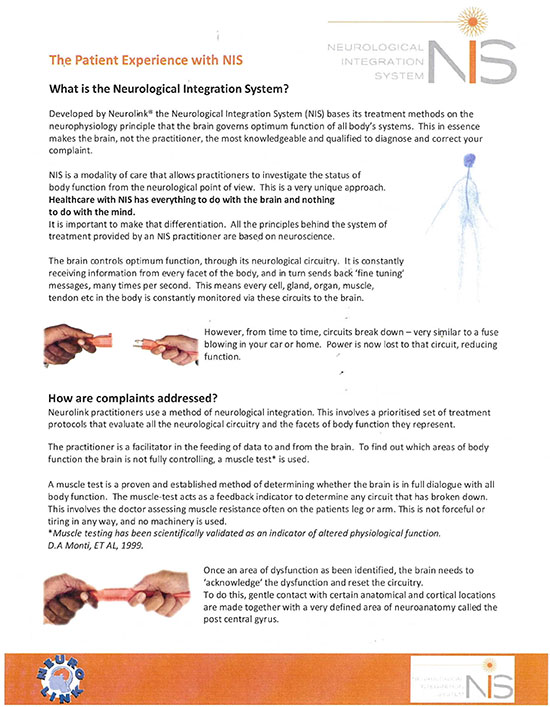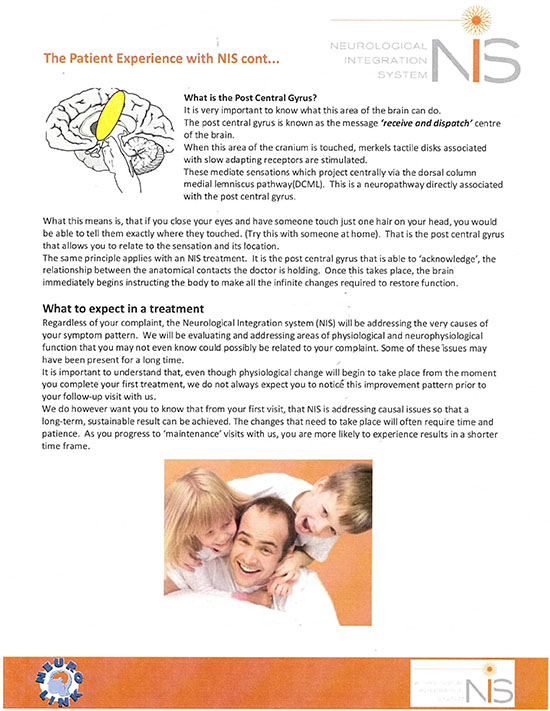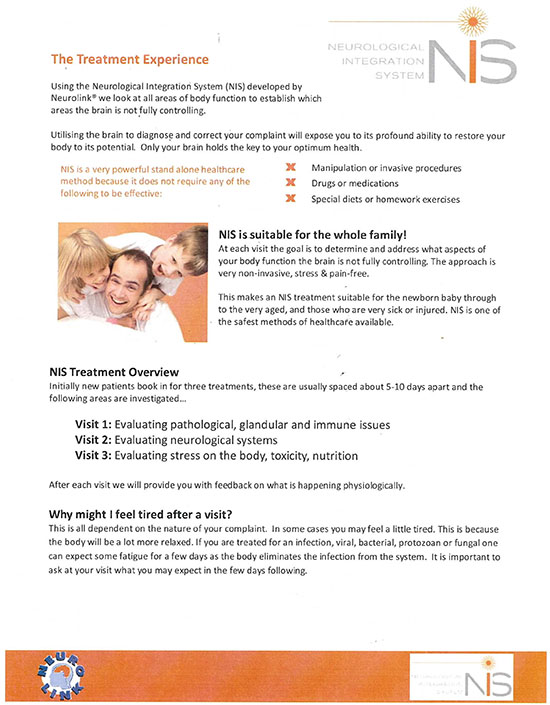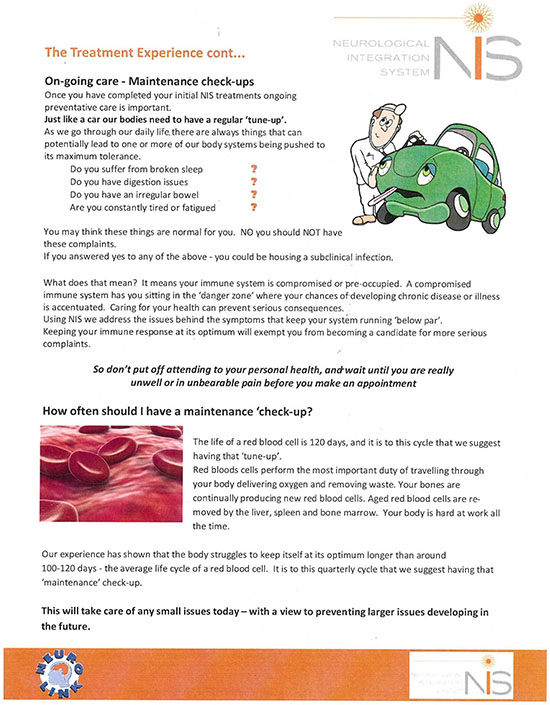Neurolink in Effingham IL
Specializing in acute pain and chronic illness the Neurological Integration System (NIS) in Effingham IL uses the latest scientific research at a cellular level to address CAUSES and not symptoms. ONLY by addressing your health at cell level can you achieve optimum sustainability. NIS, developed by Neurolink® is suitable for the whole family! Over the last 20 years practitioners globally have been using the NIS system in practice, treating a wide spectrum of symptoms/complaints.
For more information click here
NIS FAQ in Effingham IL
1. What is the Neurological Integration System?
Developed by Neurolink® the Neurological Integration System (NIS) bases its treatment methods on the neurophysiology principle that the brain governs optimum function of all body’s systems. This in essence makes the brain, not the practitioner, the most knowledgeable and qualified to diagnose and correct your complaint.
NIS is a modality of care that allows practitioners to investigate the status of body function from the neurological point of view. This is a very unique approach. Healthcare with NIS has everything to do with the brain and nothing to do with the mind. It is important to make that differentiation. All the principles behind the system of treatment provided by an NIS practitioner are based on neuroscience. The brain controls optimum function, through its neurological circuitry. It is constantly receiving information from every facet of the body, and in turn sends back ‘fine tuning’ messages, many times per second. This means every cell, gland, organ, muscle, tendon etc in the body is constantly monitored via these circuits to the brain.
However, from time to time, circuits break down – very similar to a fuse blowing in your car or home. Power is now lost to that circuit, reducing function.
2. How are complaints addressed?
3. What is the Post Central Gyrus?
4. What can I expect in a treatment?
5. Are treatments suitable for the whole family?
6. Why might I feel tired after a visit?
7. Are maintenance check-ups necessary?
8. How often should I have a maintenance ‘check-up?




OFFICE HOURS
Monday
8:00am - 4:00pm
Tuesday
8:00am - 4:00pm
Wednesday
8:00am - 12:00pm
Thursday
8:00am - 4:00pm
Friday
Closed
Saturday & Sunday
Closed
New Health Chiropractic
401 N Keller Dr #2
Effingham, IL 62401



